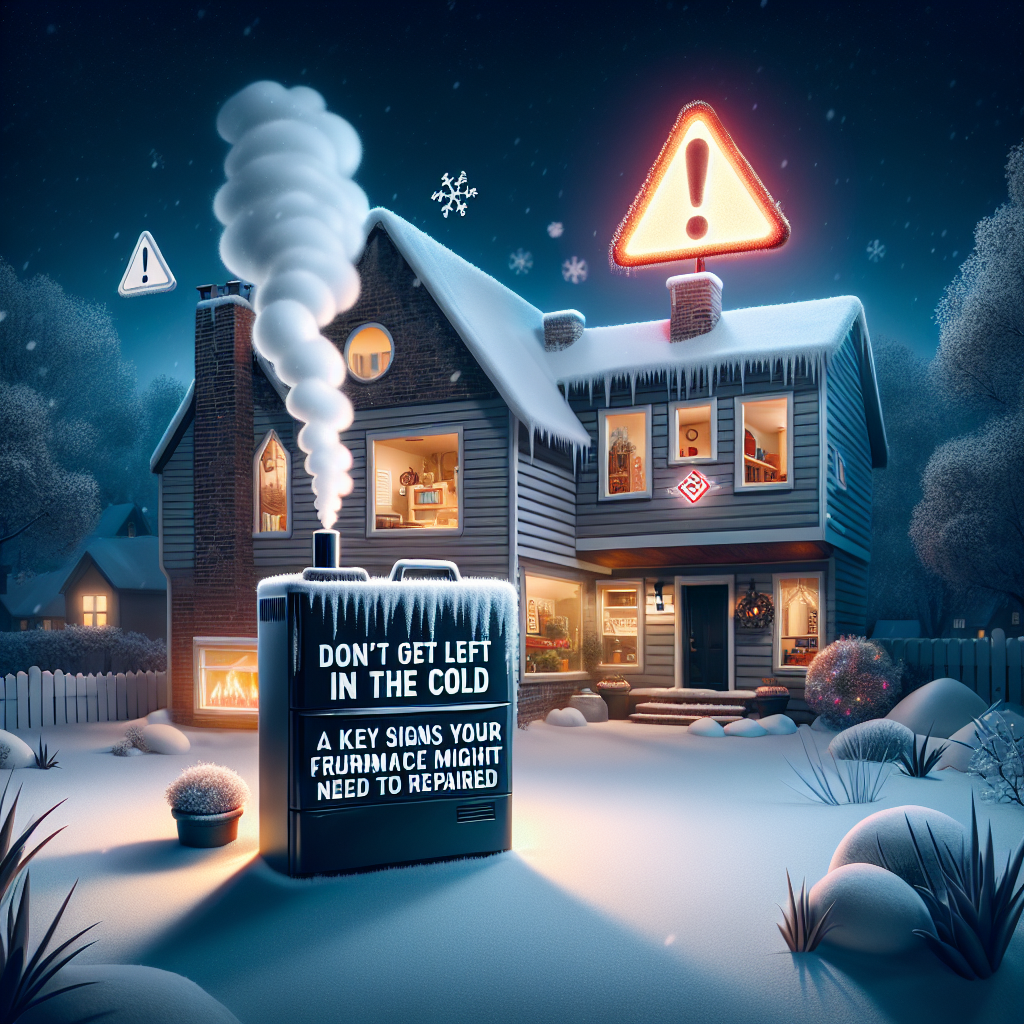As the temperature drops and winter sets in, the last thing you want is to be left in the cold due to a malfunctioning furnace. Your heating system works hard to keep your home warm and comfortable, and it’s essential to recognize the signs it may need repair. By identifying these warning signals early, you can take action before a minor issue turns into a major crisis. In this article, we’ll explore key indicators that your furnace might need repair and provide valuable tips on how to keep your home cozy all winter long.
Noticing Unusual Noises? Pay Attention!
One of the first signs that your furnace may require repair is strange noises coming from the unit. Sounds like banging, clanking, or rattling can indicate a range of problems, from loose parts to internal damage. If you hear these unsettling noises, don’t ignore them! They could signal that your furnace is struggling to operate efficiently.
Common Noises to Watch For:
- Banging or Clanking: Often a sign of loose components or a malfunctioning blower motor.
- Hissing or Whistling: This could indicate a gas leak, which is an emergency situation requiring immediate attention.
- Squealing: A high-pitched squeal might indicate worn-out bearings or a need for lubrication.
If your furnace starts making unusual sounds, it’s best to contact a professional technician for an evaluation before the problem worsens.
Inconsistent Heating: Is Your Home Warm Enough?
Do you find that certain rooms in your home are cold while others are overheated? Inconsistent heating is a clear sign that your furnace may be struggling. Factors such as clogged air filters, faulty thermostats, or ductwork issues could be the culprits.
Check These Areas:
- Thermostat Calibration: Ensure your thermostat is set correctly and is functioning properly.
- Air Filters: Clogged or dirty filters impede airflow, causing your furnace to work harder.
- Ducts: Gaps in ductwork can result in air leaks, leading to uneven heating.
If you notice significant temperature variations, it may be time to call in a technician to diagnose the issue further.
Rising Energy Bills: A Costly Red Flag
Have your energy bills skyrocketed without a corresponding increase in usage? A furnace that is not running efficiently can lead to higher energy costs. If it’s working harder than necessary to heat your home, it’s time to examine the situation closely.
Consider These Factors:
- Age of the Furnace: Older units tend to be less energy-efficient. If your furnace is over 15 years old, it may be time to consider replacement.
- Maintenance History: Regular maintenance can help your furnace run efficiently and reduce energy consumption.
- Fuel Type: Switching from oil to gas or vice versa can impact your energy bills.
By addressing efficiency issues, you can save money on your heating bills and keep your home warm.
Odd Smells: Safety Comes First
Smells coming from your furnace can indicate various issues, some of which may pose safety hazards. If you detect a burning smell, it could be a sign that the furnace is overheating or that debris is caught in the system. Similarly, a sulfur or rotten egg scent could point to a gas leak.
What to Do:
- Burning Smell: Turn off your furnace and contact a professional to inspect it for overheating or electrical issues.
- Gas Odor: Evacuate your home immediately and call your gas company or emergency services.
Taking prompt action when it comes to unusual smells can help prevent dangerous situations.
Frequent Cycling: Is Your Furnace Short-Cycling?
A furnace that turns on and off frequently is said to be short-cycling, which may indicate problems with the thermostat or other components. This can lead to inadequate heating and increased wear on your unit.
What to Consider:
- Thermostat Settings: Check if the thermostat is set to the correct temperature.
- Blocked Airflow: Ensure vents and ducts are unobstructed for proper airflow.
- System Overload: Sometimes, it can mean your furnace is simply too small for your home.
If you notice your furnace cycling too frequently, it’s crucial to consult a specialist to identify and remedy the issue.
Maintaining Your Furnace for Longevity
Taking care of your furnace can prolong its life and efficiency. Simple steps include regularly changing air filters, scheduling annual inspections, and keeping vents clear of debris. These proactive measures can help prevent major problems and keep your furnace running smoothly.
Schedule Regular Maintenance
Investing in regular professional maintenance can save you money in the long run and ensure your furnace operates efficiently. An experienced technician can address minor issues before they escalate and keep your heating system running for years.
Conclusion: Don’t Wait Until It’s Too Late
Recognizing the warning signs that your furnace needs repair is essential for keeping your home warm and safe during the winter months. By staying vigilant and addressing issues early, you can avoid the inconvenience and discomfort of a breakdown. If you notice any of the signs mentioned in this article, don’t hesitate to contact a professional for an evaluation. Stay warm, stay comfortable, and most importantly, don’t get left in the cold!


